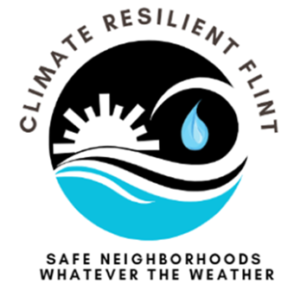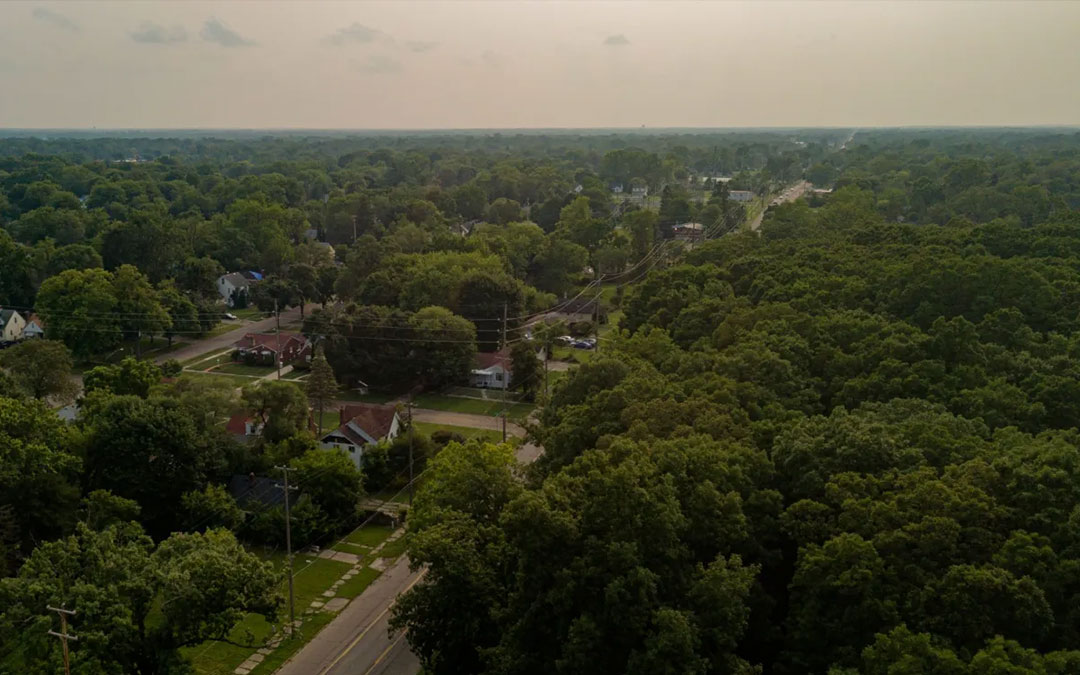 Are you feeling the heat? According to the National Oceanic and Atmospheric Administration, June 2023 globally averaged as the hottest June on record, and climate scientists believe it likely that we will continue to see abnormally hot temperatures throughout the rest of the year. While discussions of climate change can spark anxiety, Climate Resilient Flint, a new Flint-based climate literacy project, believes in our community’s ability to address climate change successfully and positively by collaborating to build local climate resilience to changing weather conditions.
Are you feeling the heat? According to the National Oceanic and Atmospheric Administration, June 2023 globally averaged as the hottest June on record, and climate scientists believe it likely that we will continue to see abnormally hot temperatures throughout the rest of the year. While discussions of climate change can spark anxiety, Climate Resilient Flint, a new Flint-based climate literacy project, believes in our community’s ability to address climate change successfully and positively by collaborating to build local climate resilience to changing weather conditions.
Funded by the National Oceanic and Atmospheric Administration, Climate Resilient Flint is a coalition of local organizations, including the Environmental Transformation Movement of Flint, Genesee Conservation District, M.A.D.E. Institute, the Neighborhood Engagement Hub, and Kettering University. The project’s mission is to foster climate learning and resilience opportunities in Flint, including supporting the growth of local green workforce programming and collaborating with neighborhoods and community organizations to develop climate change awareness and identify climate adaptation needs.
In a first step towards this goal, Climate Resilient Flint announces the opening of its Cool Lot program, a climate literacy grant program that will fund the revitalization of empty lots with a climate change twist. Interested groups can apply for $4,000 to revitalize a vacant lot through passive cooling planting for community or neighborhood use. A low-cost option that both beautifies and cools an area, passive cooling planting describes a planting technique that uses vegetation to support cooling the immediate surrounding environment. There are many benefits to revitalizing a vacant lot into a passive cooling space, including cooling nearby ground or pavement, reducing street or property flooding during rainstorms, and potentially lowering AC bills by planting trees that cast shade on neighboring homes or buildings. As groups revitalize their lots in partnership with Climate Resilient Flint, they will also learn about climate change, how it affects Flint, and how it connects to ongoing community conversations about urban blight, environmental justice, and health and wellbeing.
Climate Resilient Flint aims to support the growth of community relations and provide learning opportunities for areas in Flint that have historically seen low investment and high urban blight. The project consequently welcomes neighborhood groups, groups of neighbors, and community-serving organizations in Wards 1, 2, and 3 to apply for a Cool Lot grant to transform a vacant neighborhood lot through passive cooling techniques into a space that will serve a community need. Applicants should organize a team of 4-8 ward residents who will lead the effort and who are excited to work with Climate Resilient Flint to learn about climate change and design their lots. Currently, the Cool Lot grant is not funding lot revitalization for private use.
Interested in learning more? Climate Resilient Flint will host three Cool Lot informational meetings in August for each of the project’s target wards. Ward 1 will meet on Wednesday, August 16th; Ward 2 will meet on Tuesday, August 8th; and Ward 3 will meet on Wednesday, August 30th. All meetings will take place from 5:30 p.m.-7:30 p.m. at the Neighborhood Engagement Hub and refreshments will be provided. Climate Resilient Flint welcomes everyone from the Flint community to attend these gatherings, meet the team, and learn about climate change and the Cool Lot program.
Would you like to apply for a Cool Lot grant? Applications can be found at www.nehflint.org and paper copies can be picked up at the Neighborhood Engagement Hub during working hours. For more information, email Climate Resilient Flint at climateresilientflint@gmail.com or call the Neighborhood Engagement Hub’s office at (810) 214-4829.






